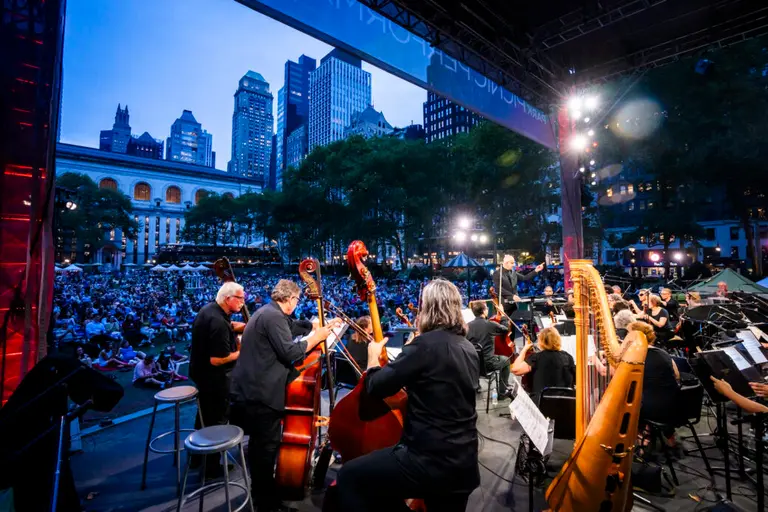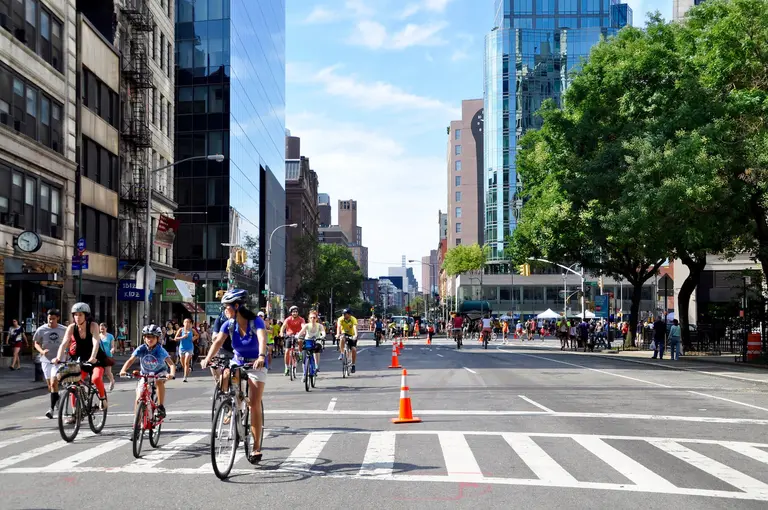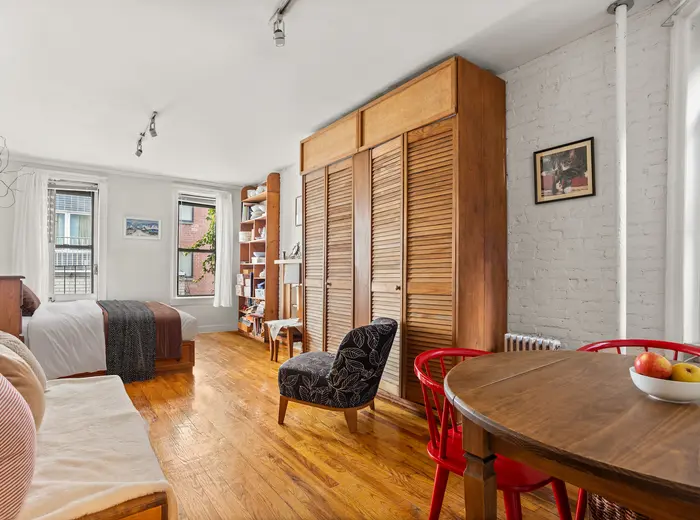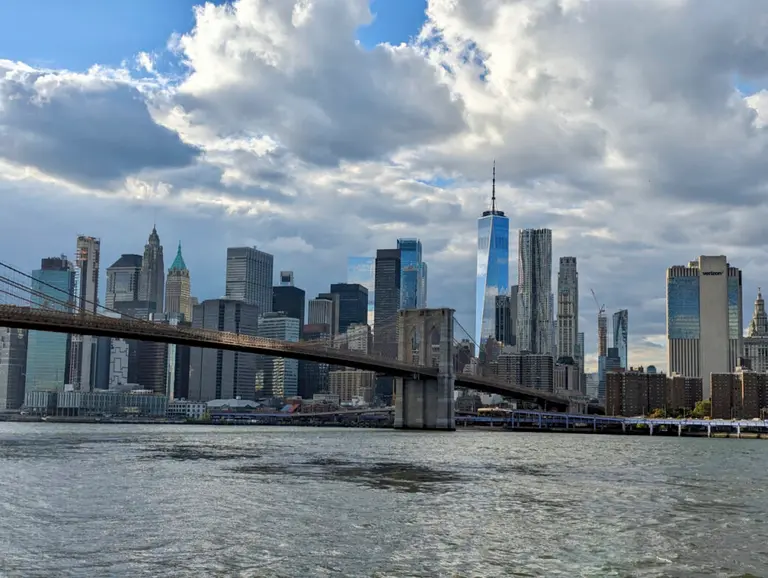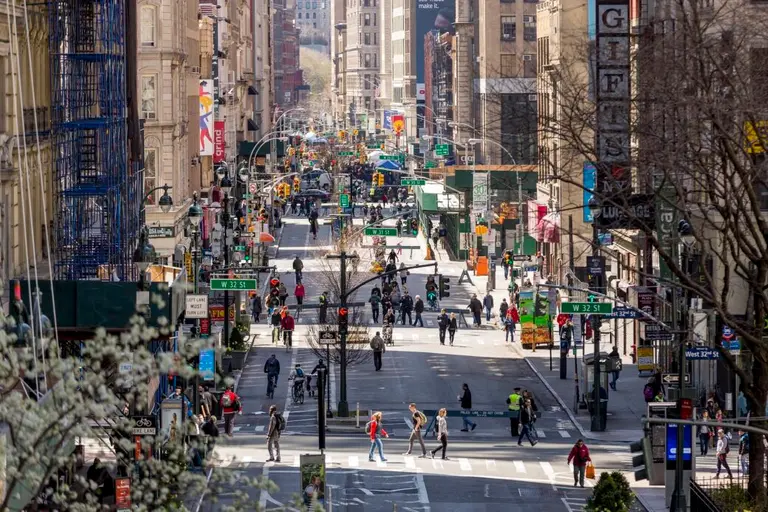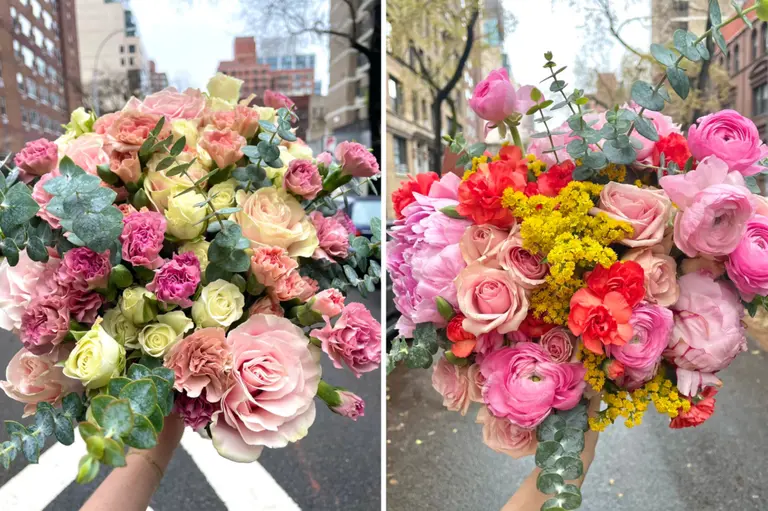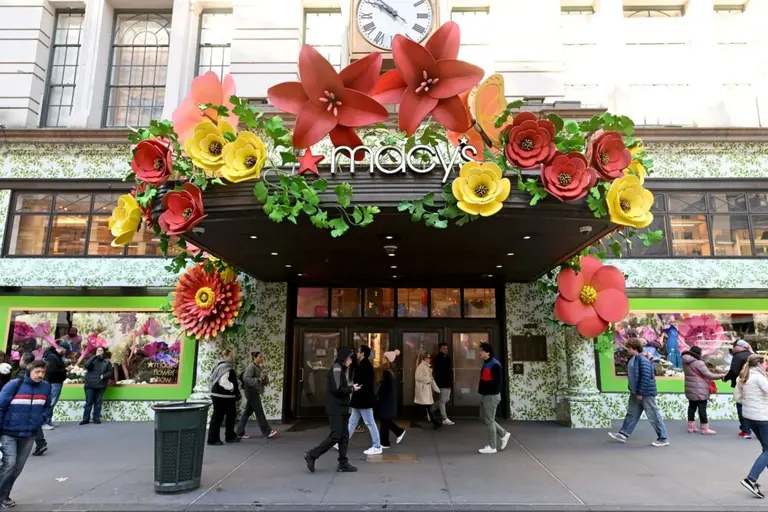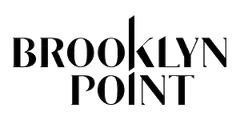INTERVIEW: Gothamist’s Jake Dobkin on answering New Yorker’s burning questions in his latest book
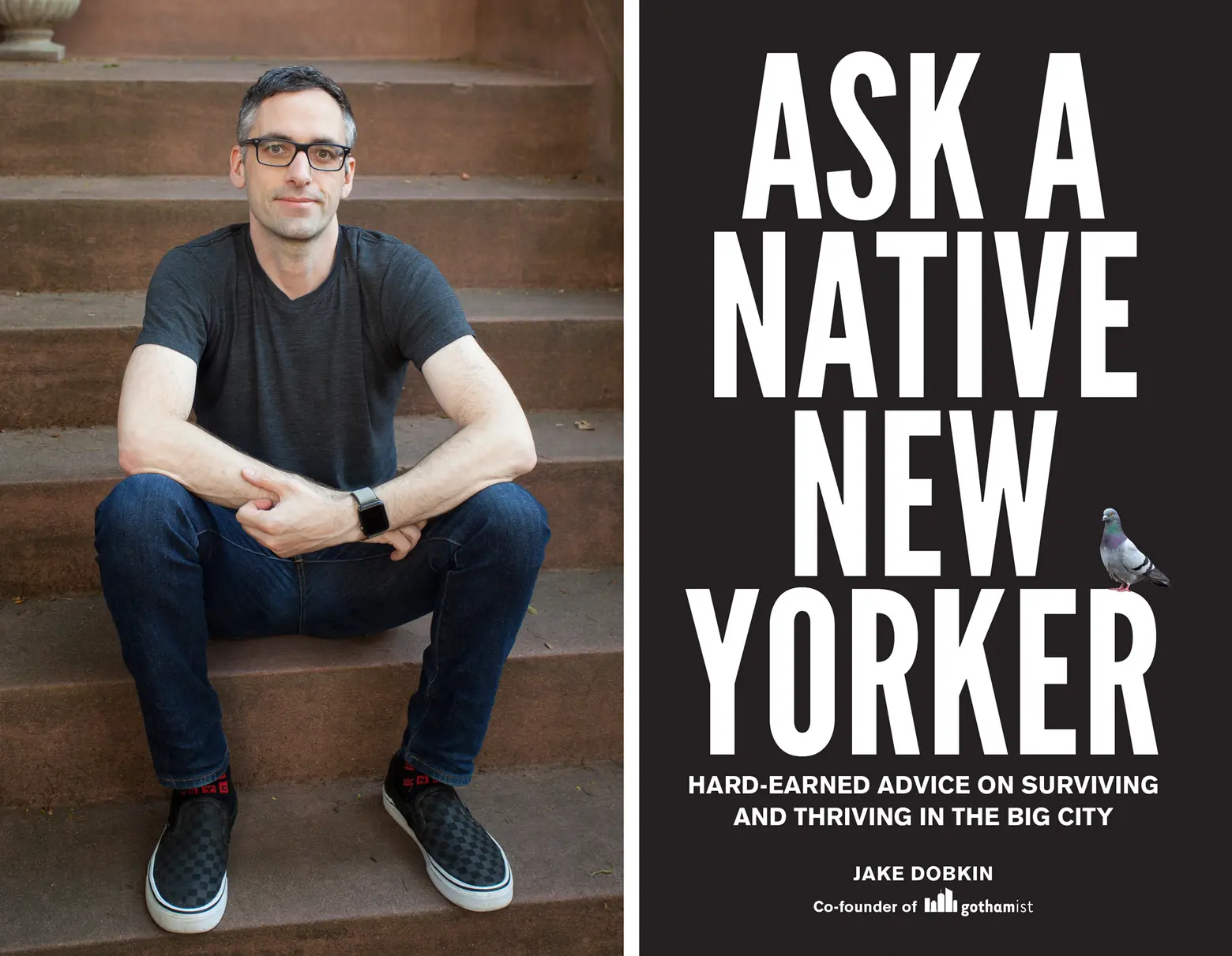
Jake Dobkin was born in Park Slope 42 years ago, and over those years he’s never left New York City for longer than 10 weeks. In 2003, he co-founded the website Gothamist with Jen Chung, which emerged as a popular culture and entertainment blog about all things New York. In the summer of 2013, Dobkin decided to channel his native knowledge and newsroom snark with the column Ask a Native New Yorker. The first installment addressed a question to make any New Yorker shudder, “Is It Normal For Roaches To Crawl Through My Hair At Night?” Since then, he’s tackled everything from amusing annoyances of city life to more serious issues like homelessness, gentrification, and who deserves a seat on the subway.
Dobkin ultimately adapted “Ask A Native New Yorker” into a book, which was just released a few weeks ago. Titled Ask A Native New Yorker: Hard-Earned Advice on Surviving and Thriving in the Big City, it contains answers to 48 new questions on New Yorker’s minds including if public transit will be messed up forever and why we complain so much. 6sqft spoke with Dobkin on why he started writing the column, how it’s changed over the years, and what’s ahead with a new book and Gothamist under the new ownership of WNYC. He also shares the best place to find a peaceful spot in the middle of the city.
I’m a fan of the column. It’s been around since 2013, right?
Jake: Yeah. The website has been around forever, since 2002. The column came out of years of talking smack to bloggers and editors. After a while, they were like, you could put your sarcastic commentary into a post so we can get page views. So I turned it into a column five or six years ago.
In the early days of the column, what was it like and how has it changed?
Jake: At the beginning it was more like raw sarcasm, biting native commentary. I was interested in local media here, where I don’t feel like there are that many natives. So my first priority was speaking for the ignored natives of New York.
After a while — once I got that out of my system — it became more helpful, sometimes more thoughtful. Over time, readers asked me to address more serious issues like gentrification, politics, housing, homelessness. There’s a time to be funny and a time not to be funny, and nobody wants to be humorous when you’re talking about the homelessness crisis of New York City. I had to learn, modulate, but still be authentic and keep the New York voice. Because otherwise what was the point, you know?
Can you talk a little bit more about that balance? What’s interesting about this column is there are really funny questions and other deeper questions about living in the city.
Jake: Fundamentally, New York can be a very challenging place to live. We New Yorkers have to develop our humor to just get through it. So that’s part of the voice. Also, New York is an incredibly rich and interesting and helpful place — we’re all in it together. Despite our reputation for being total assholes, New Yorkers are really helpful. Whenever there’s a big disaster you see the amazing character of New Yorkers helping each other. That’s part of what I see in the New York voice, and I wanted to make sure that was part of the column too.
Over the years, what have been some favorite columns?
Jake: This month I’ve been running some columns from the book. And the best, strangely, was: Why do New Yorkers walk so fast? It reminded me of how sometimes it’s just the little things. Every New Yorker has been in that situation of getting to work or drinks and you’re stuck behind tourists and there’s nothing you can do. That kind of stuff connects. You can use that silly, fun stuff to jump into more serious or interesting discussions of why are New Yorkers constantly late? Maybe it’s because the subway doesn’t work, or we’re working 80 hours a week to afford our apartments. You can really spin off, and I try in all the columns to eventually enlarge to a more universal idea.
You mention transit; that’s a theme and something New Yorkers are always talking about. What have the questions looked like around public transit over the years?
Jake: The subway is the crucible of which the New York character is formed. If you’re gonna lose your shit, you’re gonna lose it on the subway. It’s where all New Yorkers encounter each other and the borders of our society break down. At first, it was silly stuff, like washing your hands after you take the subway.
But it’s hard to talk about this stuff without getting into the more policial policy questions. Like, maybe the subway wouldn’t be so jammed if it worked better, if there was more funding, if our society wasn’t biased into putting its money into roads and bridges. A real New Yorker sees things cohesively, from the smallest thing it connects to the big questions.
So how did the book come to be?
Jake: After I had been doing it for a few years, people on the staff suggested I should print these. Eventually, agents and publishers reached out. At first, I was like, how about you take your favorite columns from the 150 I wrote and send me a check? [Laughs.] And they were like, how about not? How about you write 50 new columns?
At first, I couldn’t believe I’d have to start from scratch. But there were some topics that I addressed the first time and hadn’t really hit the Platonic ideal of that subject. So I feel like I was able to go back and made it stronger. The book is much stronger, quality wise, than the column.
Did you pull from a backlog of questions, or reach out for fresh questions?
Jake: It was a mix. On some topics, like housing questions, I had lots of questions to go back and use. Some questions come from staff or their friends. There were times I had to stitch things together from a few questions. With an advice column, sometimes a question comes in and it’s very particular, like specific details about the bedbugs in your Bushwick loft. For some, I needed to generalize a little bit.
How did you want to balance the book, hitting on different topics like housing or transit?
Jake: I saw it as a life cycle of birth to death of all the issues a New Yorker would face the moment they’re born here or arrive off the bus. Questions like, should you come here, should you live here? to how do you get around? How do you find an apartment? Eventually to things like friendships, relationships or getting married. I wanted it to be perennial, so the advice wasn’t based on a particular year. I wanted it to feel true 20 years from now.
You hit on something I love about this city, in that it’s always changing but there’s still something timeless about New York. Have you learned any lessons getting into the heads of New Yorkers and thinking through their questions?
Jake: The one lesson I’ve really drawn is that nostalgia is deaf. The thing that makes New York great is that it’s constantly changing. That also makes New York horrible and challenging. But New Yorkers who flourish here and are really happy adjust to that. Like the old people who are at the morning rave. And there’s something very hopeful about change. The things that were wrong, and weren’t good about the city, can be improved.
There’s a price to it. Like all natives, I get pissy when the bodega closes and I get gentrified out of my neighborhood. But there’s always more opportunities, more chances, and that’s not something you can say about all cities.
Have you learned anything about yourself, after stepping into this role answering questions?
Jake: I was a blogger for such a long time, and when I was younger I was a smartass. Always good for the biting remark or stupid tweet. I was an angry young man and getting that out led me into my career. But as a got older, after I had kids and worked with younger reporters, you do become wiser. It’s less important for me to be seen as really smart and clever. I prefer to be known as wise or kind.
So the column’s been a way to channel that?
Jake: Yeah, I feel like I really grew up writing that. I’m much more mature now, having done all this.
What’s the experience been like getting the book out into the world?
Jake: It feels good. We bloggers yearn for some permanence. Our art is that we start from scratch every single day. You feel like nothing you do lasts — it’s like the city, recreating something each day. But to have something to point to, being able to hold it, it’s something that represents the spirit of my life. I recommend it for everyone who writes for the internet.
There have been lots of changes with Gothamist joining WNYC. How are you moving into the future with the book and the site?
Jake: We’ve been incredibly lucky. WNYC is an amazing force of nature, so authentically New York. With us, it feels like a natural fit. Gothamist was always run as a Park Slope socialist workers collective and this place is run along very similar progressive “make the city better” lines. We’re lucky we got the chance to come back from the dead, which is not what all of our friends have gotten to enjoy. And the site is much better than it ever was before.
We’re going to do a podcast; you’ll hear more Gothamist journalists on the air and on radio, it’s going to be really multi-channel.
What’s a place that reminds you why you love the city?
Jake: I like rooftops. Especially ones that are off-limits. You know those panic bars that say “off limits” or “do not open?” I’ve noticed that almost always they’re disabled because the building staff likes to go up and smoke cigarettes. I’ve seen the city from so many different angles from the roofs of buildings. It’s amazing how peaceful it can be up there. The feeling of being alone in a crowded city is amazing, and I recommend it to everyone. Check those doors!
RELATED:


